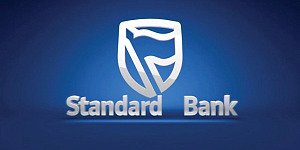Fitch Ratings has assigned Nigeria's proposed US dollar bond, to be issued under its Global Medium Term Note Programme, a 'B' rating.
Key Rating Drivers
The rating is in line with Nigeria's Long-Term Foreign-Currency Issuer Default Rating (IDR).
Fitch affirmed Nigeria's Long-Term Foreign-Currency IDR at 'B' with a Stable Outlook on 19 March 2021.
The following ESG issues represent Key Rating Drivers for the proposed bond; other Key Rating Drivers can be found in the issuer rating action commentary dated 19 March 2021:
ESG-Governance: Nigeria has an ESG Relevance Score of '5' for both Political Stability and Rights and Rule of Law, Institutional and Regulatory Quality and Control of Corruption, as is the case for all sovereigns. Theses scores reflect the high weight that the World Bank Governance Indicators have in our proprietary Sovereign Rating Model.
The rating on the proposed bond is sensitive to any changes in the Long-Term Foreign-Currency IDR, which has the following rating sensitivities (as per the most recent issuer rating action commentary).
RATING SENSITIVITIES
Factors that could, individually or collectively, lead to negative rating action/downgrade:
-Public Finances: Failure to address weaknesses in the fiscal policy framework, illustrated by a reinstatement of the fuel price subsidy or continued large central bank financing of the sovereign, particularly if it exceeds institutional safeguards.
-External Finances: Significant intensification of external liquidity pressures, for example, illustrated by a rapid drawdown in reserves or renewed downturn in oil prices.
Factors that could, individually or collectively, lead to positive rating action/upgrade:
- External Finances: Stronger resilience of external finances from a durable recovery in international reserves or resumption of current account surpluses, and exchange-rate regime reform addressing Nigeria's ongoing external vulnerability.
- Public Finances: Credible path to stronger mobilisation of domestic non-oil revenues sufficient to significantly lower the particularly high debt- and interest-to-revenue ratios.
- Macroeconomic performance: A broad and sustainable improvement in the macroeconomic picture, with stronger economic growth supporting a recovery in GDP per capita and a durable moderation in inflation towards the central bank's target.
Best/Worst Case Rating Scenario
International scale credit ratings of Sovereigns, Public Finance and Infrastructure issuers have a best-case rating upgrade scenario (defined as the 99th percentile of rating transitions, measured in a positive direction) of three notches over a three-year rating horizon; and a worst-case rating downgrade scenario (defined as the 99th percentile of rating transitions, measured in a negative direction) of three notches over three years. The complete span of best- and worst-case scenario credit ratings for all rating categories ranges from 'AAA' to 'D'. Best- and worst-case scenario credit ratings are based on historical performance. For more information about the methodology used to determine sector-specific best- and worst-case scenario credit ratings, visit https://www.fitchratings.com/site/re/10111579.
Date of Relevant Committee
17 March 2021
REFERENCES FOR SUBSTANTIALLY MATERIAL SOURCE CITED AS KEY DRIVER OF RATING
The principal sources of information used in the analysis are described in the Applicable Criteria.
Nigeria does not publish consolidated fiscal data on a general government basis, which complicates the assessment of fiscal performance. However, Fitch is able to produce its own estimates for general government fiscal metrics that are broadly consistent with and comparable to the data used for other sovereigns, providing sufficient information to maintain the rating. These estimates are based on disaggregated data on federal, state and local government revenue, spending and debt published by the Nigerian National Petroleum Corporation, the Central Bank Nigeria, the Debt Management Office, the Budget Office of the Federation and the National Bureau of Statistics. Fitch has sufficient confidence in these estimates to maintain the rating and the rating level further mitigates residual uncertainty on the accuracy of Fitch's estimates.
ESG Considerations
The ESG profile is in line with that of Nigeria.

























































